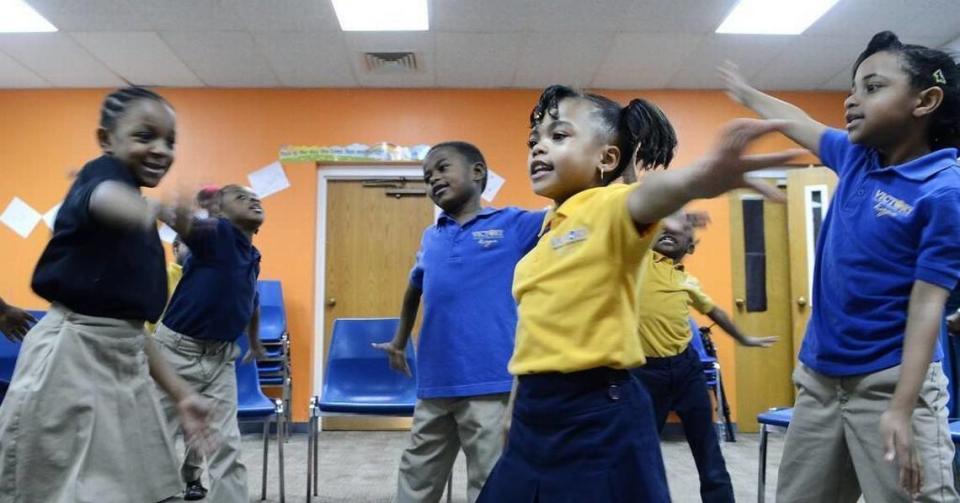‘Great day’ for NC? GOP lawmakers set to allow universal private school vouchers
Republican lawmakers have agreed on a plan that will allow any North Carolina family to receive taxpayer funding to attend a private school.
At a news conference Wednesday, state House and Senate GOP leaders said they will approve an expansion of the Opportunity Scholarship program that eliminates income eligibility limits for voucher recipients.
The “Choose Your School, Choose Your Future Act” will be heard Wednesday in the Senate Education Committee. The legislation is expected to become law this year because Republicans now have large enough majorities to override vetoes from Democratic Gov. Roy Cooper.
“This is a great day in North Carolina,” said Rep. Tricia Cotham, whose defection to the Republican Party gave the GOP a supermajority in the House. “We have solid support from both chambers.
“This is a movement we’re seeing all across the country and especially in North Carolina, where families want opportunities because they want the best for their child.”
Critics of the bill charge it will hurt traditional public schools and allow wealthy families to get taxpayer support to attend private schools.
Originally for poor families only
The Opportunity Scholarship program was initially promoted, when it was created in 2014, as a way to help low-income families escape failing public schools.

The program has grown to serve 25,246 students. Last school year, it helped fuel the largest expansion in North Carolina private school enrollment since 1971.
Over time, both the income-eligibility limits and the amount of the voucher have been raised.
The program was expanded this school year so that a family making 200% of the amount needed to qualify for federally subsidized meals could get funding. That’s an income of $111,000 for a family of four.
Sen. Michael Lee, a New Hanover County Republican, said that it’s the government’s role to help all children.
Under Senate Bill 406, the income eligibility limits would change to:
▪ A family of four making 100% of the amount needed to qualify for a free or reduced lunch would get full voucher funding, which is equivalent to the average amount the state spends per student in public schools. That would be the equivalent of a family of four making less than $55,500 a year.
▪ A family making between 100% and 200% of the amount for a subsidized meal would get 90% of the voucher amount. That’s equal to a family of four making between $55,500 and $111,000 a year.
▪ A family making 200% to 450% of the income needed for a subsidized meal would get 60% of the voucher amount. That’s a family of four making between $111,000 and $249,750 a year.
▪ A family making more than 450% of the income needed for a subsidized meal would get 45% of the amount given per child in public schools. That’s equal to a family of four making more than $249,750 a year.
The legislation also eliminates any requirements that recipients had to have previously attended public schools.
The changes would go in effect for the 2024-25 school year, a year later than originally proposed.
Religious schools get most funding
Historically, most families have used their vouchers to attend religious schools
Tamika Walker Kelly, the president of the North Carolina Association of Educators, had been among the plaintiffs who recently dismissed a lawsuit against the Opportunity Scholarship program. They had argued that the program should be unconstitutional because some schools bar students who support LGBTQ+ rights or who don’t follow the school’s religious beliefs.
Lee said that it should be up to the parent to decide to which private school they want to send their child.

